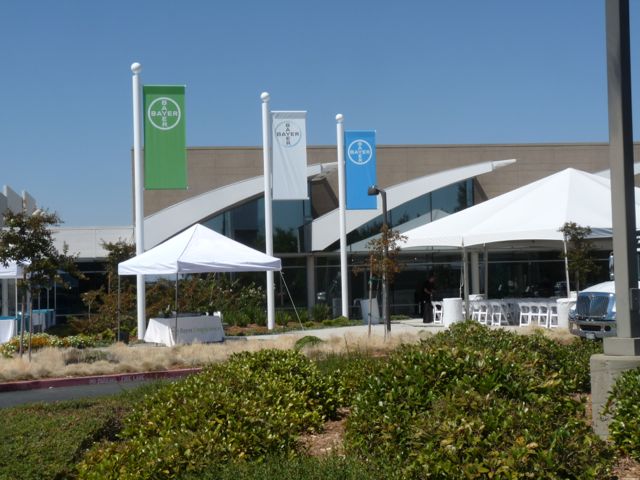Bayer CropScience’s New West Sacramento Facility to Focus on Biopesticides
Biopesticides Are Valuable Part of Pest and Disease Control
By Colby Tibbett
Bill Stoneman is the executive director of the Biopesticide Industry Alliance, which is dedicated to fostering adoption of biopesticide technologies through increased awareness about their effectiveness and full range of benefits to a progressive pest management program.
“These are very important tools in terms of resistance management because they allow us to target alternative modes of action against pests. Biopesticide technologies are tools in the quiver, as well as the chemistries we are currently using and developing,” said Stoneman.
Biopesticides offer many other benefits, such as no maximum residue level (MRL) issues, reduced preharvest intervals and decreased reentry intervals.

Bill Stoneman, Biopesticide Industry Alliance Executive Director
“What you’re going to find, is that they will be used in rotation with the chemical pesticides or other cultural methods to prevent plant diseases and insects. I think you’re going to see more development in the seed treatment area. Again, seed is a good delivery mode to get things to the plant’s roots, and that’s where a lot of these materials are effective, from the plant-disease perspective,” said Stoneman.
With regard to insect control, Stoneman said, “We’re going to see new things coming into the marketplace. Some insect-specific viruses are going to be expanding in the U.S. soon, with applications on a variety of crops—but very insect specific—so in other woBill Stoneman Bayer Crop Science West Sacramentords, they kill only that insect, so there is no harm to pollinators or beneficials,” said Stoneman.
This will be more common in the future, according to Stoneman, “I think we will see as a trend going forward more reliance on the biologicals, pollinators, tailored pest control programs and IPM approaches to preventing any damage to those natural control forces in agriculture,” said Stoneman.
A big step for Biopesticides in California was the recent grand opening of the Bayer CropScience’s $80 million investment in their biologics and seed business in West Sacramento. It will focus on this new frontier of pest and disease control.

Adrian Percy, Bayer CropScience Global Research and Development (Source: www.bayercropscience.com)
Adrian Percy, global head of research & development (R&D) with Bayer CropScience, explained Bayer’s decision for the West Sacramento location, “First and foremost, California is an amazing hub of agricultural innovation. We have UC Davis just down the road, which we have close ties to. In 2012, we purchased AgraQuest, which was based in Davis, so basically we’re moving them into this new facility which is much bigger and more state-of-the-art than what they were using previously,” said Percy.
“We’re really excited because here we will be researching brand-new applications based on bacterial-based products, fungicides, insecticides, etc. In addition, we will be developing new vegetable seed varieties,” said Percy.
Among the advantages of these new biologic tools for growers is avoidance of MRLs, a big boon for vegetable growers. “We see a lot of advantages for these types of products. And this is one of the fastest growing sectors both for us as a company, but also in general. What we are seeking to do now is bring next generation products to the marketplace which are even better than the ones we have today,” said Percy.
“These kinds of products, I think from a stewardship and management perspective, are very advantageous to the grower,” he added.









